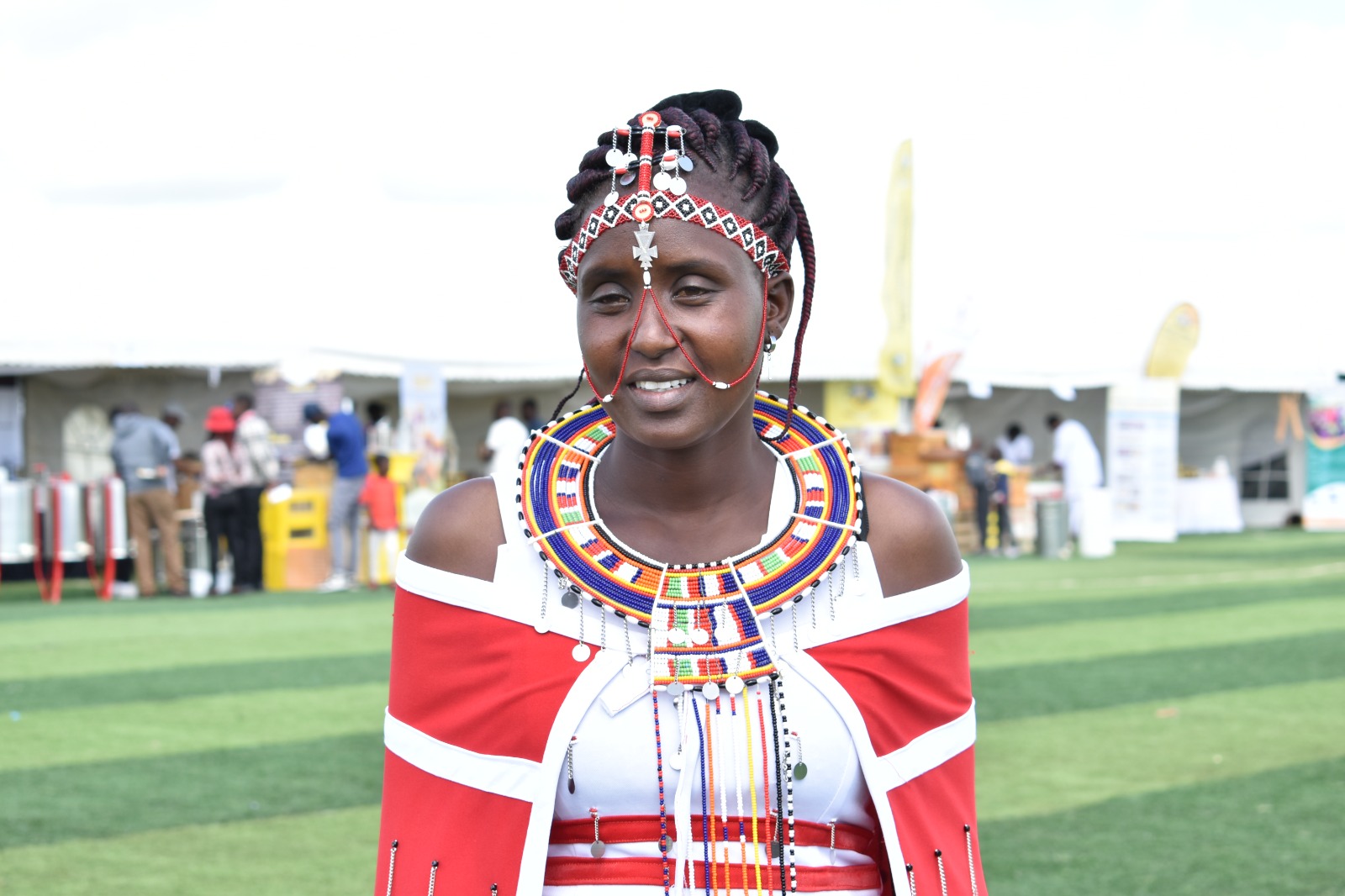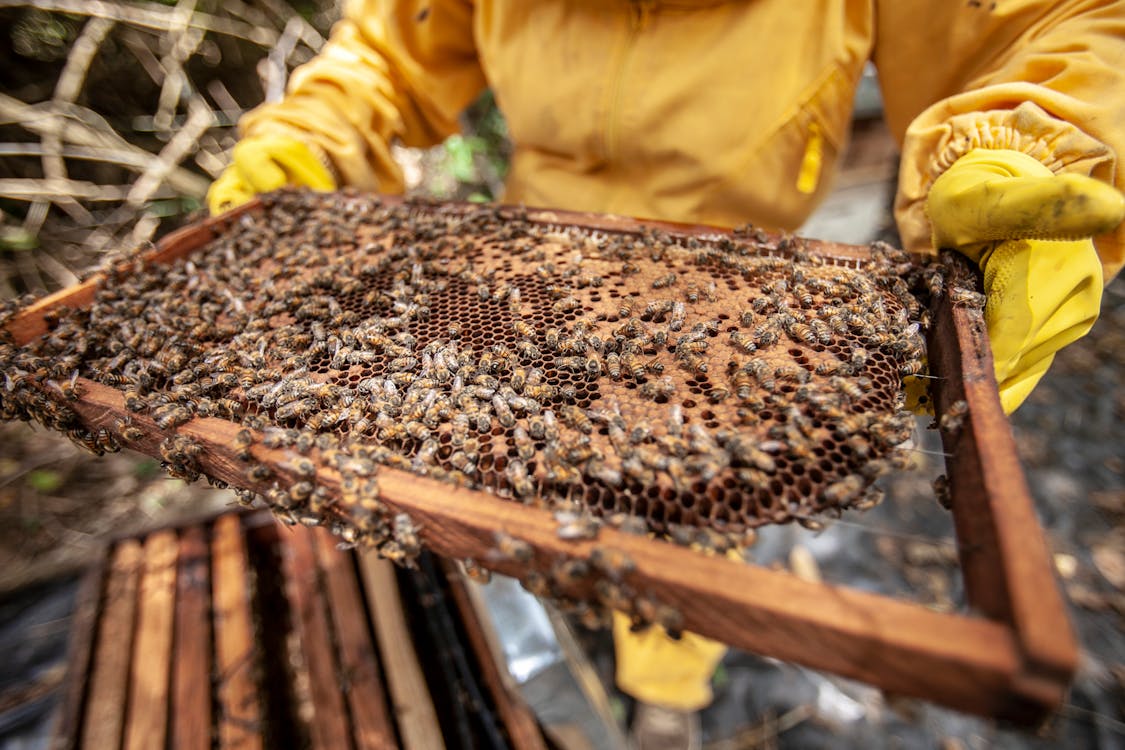Under the vast skies of pastoralist communities, where nomadic traditions have defined livelihoods for centuries, a quiet revolution is taking place.
Among the hum of bees and the scent of wildflowers, women are discovering new opportunities through the age-old practice of beekeeping.
This transformative venture enhances their economic standing and fosters social empowerment, creating a ripple of change in communities traditionally dominated by livestock herding.
Twenty-five-year-old Grace Larpei from Laikipia North constituency in Laikipia County has witnessed firsthand what beekeeping can do for a community.
With the support of her husband who also owns his hives, Larpei has established 50 of her own which fetch Ksh 1,000 per kilogram of honey.
“I was sceptical before I ventured into beekeeping three years ago, but I can say that I have reaped the benefits. I can now comfortably pay for school fees and take care of the household, unlike a few years back when I struggled to complete my education,” she says.

The mother of two further states that by joining the Laikipia Livestock Marketing Cooperative Society Limited, she has tapped into the value-addition chain of her bees, boosting her earnings.
“We are beekeepers, but more importantly, we are changemakers. Our hives are small, but the impact is immense,” she proudly declares.
For many women, the financial independence gained through beekeeping translates into greater household influence. Women who once depended entirely on their husbands for financial support now contribute significantly to family income.
This shift not only improves their economic status but also boosts their self-esteem and decision-making power within the household.
Speaking ahead of World Bee Day 2024, Dr. John Kioko, Programme Coordinator at World Wide Fund for Nature Kenya (WWF-Kenya), emphasizes that beekeeping requires minimal land and can thrive even in areas unsuitable for agriculture.
“This makes it an ideal supplementary income source for pastoralist communities. The initial investment in equipment like hives and protective gear is relatively low, and the returns can be substantial. Honey, beeswax, and other hive products such as propolis, bee venom and royal jelly have high market value, both locally and internationally,” he explains.
Dr. Kioko also highlights that beyond economic benefits, beekeeping fosters community cohesion and collective action.

“Women beekeepers often form cooperatives to share resources, knowledge, and market access. These cooperatives become platforms for mutual support and advocacy, enhancing social bonds and collective bargaining power,” he says.
The correlation between beekeeping and bees is fundamental to environmental health and agricultural success.
“Through pollination, bees support biodiversity and enhance crop yields, contributing to food security and ecological stability. Sustainable beekeeping practices are essential to maximize these benefits while addressing the challenges faced by bee populations,” Dr. Kioko avers.
Erick Anenda, County Director of Livestock Production in Kajiado County, notes that despite the numerous benefits, beekeeping in pastoralist communities is not without challenges.
“Access to markets, fluctuating honey prices, and the impacts of climate change on bee health are significant hurdles. Additionally, cultural norms in some regions may restrict participation in beekeeping activities,” he says.

However, he says that ongoing support from the county government, development organizations, training programs, and policy initiatives aimed at equipping beekeepers are helping to overcome these barriers.
“By addressing these challenges, beekeeping can continue to empower more women and transform pastoralist economies,” Anenda asserts.
In Kajiado County, each of the five sub-counties has a cooperative under the Kajiado County Beekeeping Cooperative Union.
“Our vision is to nurture our beekeepers to leverage the value chain as we brand the products as a county,” says Anenda.
Today, bees, pollinators, and many other insects are declining in abundance.
With over 20,000 species of bees and various other wild pollinators, they face challenges from human activities such as habitat loss, pesticide use, and climate change.
In recognition of the pivotal role that youth can play in addressing the challenges bees and other pollinators are facing, World Bee Day 2024 focuses on the theme “Bee Engaged with Youth.”
This theme highlights the importance of involving young people in beekeeping and pollinator conservation efforts, recognizing them as the future stewards of our environment.
Nearly 90 per cent of the world’s wild flowering plant species depend, entirely or at least in part, on animal pollination, along with more than 75 per cent of the world’s food crops and 35 per cent of global agricultural land.
To raise awareness of the importance of pollinators, the threats they face, and their contribution to sustainable development, the UN designated May 20th as World Bee Day.
This year’s campaign aims to raise awareness among youth and other stakeholders about the essential role of bees and other pollinators in agriculture, ecological balance, and biodiversity preservation.
By engaging young people in beekeeping activities, educational initiatives, and advocacy efforts, we can inspire a new generation of environmental leaders and empower them to make a positive impact on the world.
Fostering more diverse agricultural systems and reducing reliance on toxic chemicals can facilitate increased pollination. This approach can improve food quality and quantity, benefiting both human populations and the ecosystem.





